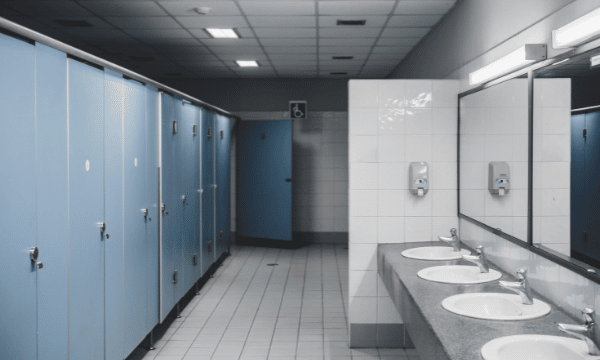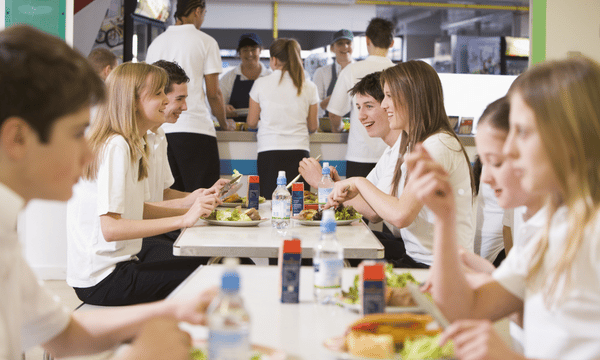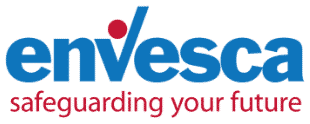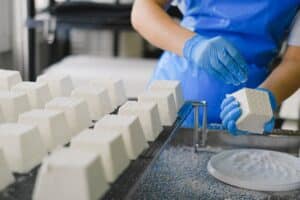What Welfare Facilities Are Required In The Workplace?
When it comes to welfare facilities, one of the questions we often get asked is “What Welfare Facilities Are Required In The Workplace?” In this article, we answer this question by giving a summary of the main welfare facilities you need to think about.
The Workplace (Health, Safety and Welfare) Regulations 1992 state the welfare facilities that employers must provide. Construction sites are largely excluded from the regulations as welfare is covered in the Construction (Design and Management) Regulations 2015.
Every workplace must provide sanitary facilities and drinking water, then, depending upon the type of workplace you may have to provide accommodation for clothing and facilities for changing and rest areas.
The number of toilets you need to provide
The HSE publication L24 Workplace Health, Safety and Welfare contains tables that give a number of facilities advised for the number of employees. Depending upon the layout of your premises, however, you may need more conveniences than stated on the table as you should not expect employees to have to walk too far to use them.
Toilets need to be well maintained, clean, adequately ventilated and well lit. Legally you also have to provide toilet paper in a holder or dispenser, a coat hook and if female employees use the facility a sanitary waste bin should also be provided.

Men and women can share sanitary facilities
Men and women can share toilets and showers but only if each facility is in a separate room with a lockable door and is for use by only one person at a time.
Providing showers for staff
If your type of work activity does not warrant it, you do not need to provide showers for employees because they cycle into work.
The legal minimum for washing facilities is hand basins with hot and cold running water. Employees should be able to wash their face, hands and arms up to the elbow in them. You also need to supply employees with soap and towels. Other washing facilities such as showers or baths do not legally have to be provided unless your work is dirty, particularly strenuous or will result in contamination of the skin by hazardous substances.
Providing changing facilities
Changing facilities only need to be provided for employees who need to change into special clothing for work purposes. You, therefore, do not need to provide changing facilities for those who cycle into work or exercise at lunchtime unless there is a work reason to change clothes. The facilities should ensure the privacy of the user and have seating.
Providing drinking water
If you cannot obtain water directly from the mains then water can be provided in refillable enclosed containers, you can also use bottled water as a secondary supply, for example on factory floors so employees do not have to walk excessive distances to get a drink. Containers should be refilled at least daily (unless they are chilled water dispensers where the containers are returned to the supplier for refilling). You must also provide cups or beakers to drink from unless the supply is a proper drinking fountain.

Providing a separate eating area
A separate area for eating meals is only required if employees’ food is likely to be contaminated by work processes. For example, employees should not be expected to eat their lunch on a factory shop floor, but in an office environment, it is usually clean enough to eat at a desk. Employees should be able to take rest breaks undisturbed, so again sitting at a desk would be acceptable providing there are no interruptions. For example, a receptionist should not be expected to sit at their desk for a break as they may be disturbed by visitors or members of the public.
Providing heating/chilling facilities
You must provide a means of heating water for hot drinks unless there is another way to obtain hot drinks such as a vending machine or canteen. A fridge is not a legal requirement. A microwave only needs to be provided if there is nowhere in or reasonably near the workplace to obtain hot food.
If you have a question or enquiry about health and safety, please call the team on 01452 502113 or complete our enquiry form.
Find this helpful?
Signup to our email notifications to receive alerts when we publish new blogs. We promise not to spam your inbox, you will just get a short snappy intro to Health and Safety articles we think you will love.
"*" indicates required fields

The Ultimate First Aid Checklist
If you are an appointed person or first aider for your company you should carry out regular checks of your business to ensure that your first aid facilities are up to date. This comprehensive checklist will help you ensure you have everything covered! Get your FREE copy now.
If you’ve got a question or query, please contact our super friendly team, they will be delighted to help you!
Simply get in touch via phone or email.

Free
Resources &
Downloads
Informative. Useful. Practical.
Here at Envesca we believe that we are good at giving proactive, sensible and useful advice. Below you will find some free resources that you can download on a host of subjects that will help you and your business.
Training Available
Envesca offer a number of different training courses, which offer advice and guidance on these topics.





